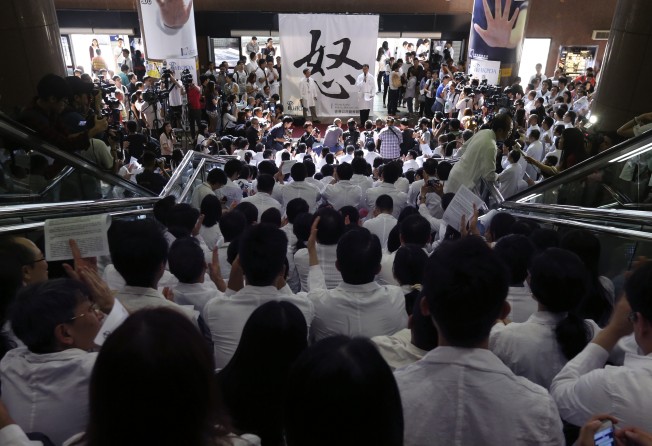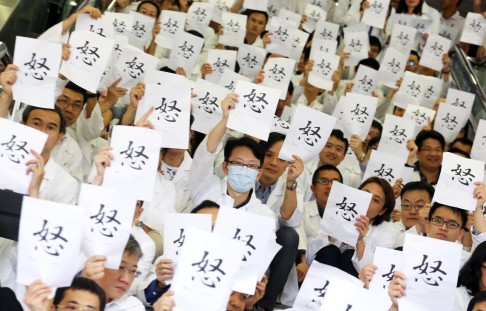One-off pay rise won't fully assuage Hong Kong public doctors' unhappiness
Chow Pak-chin says the Hospital Authority must establish a proper payroll structure to avoid further misunderstandings from public doctors

The mass sit-in staged by 1,300 senior public-sector doctors at Queen Elizabeth Hospital last month came as little surprise. What we now know is that it succeeded, with the Hospital Authority pledging to seek approval for a 3 per cent pay rise. But are we to settle for this cosmetic gesture, without looking into what is causing the disputes, and public-sector doctors to feel underappreciated?
To better understand the anger that sparked the sit-in, we need to look at the payroll structure within the authority, which is near non-existent. Initially, medical staff of public hospitals, as government servants, were paid a salary, plus fringe benefits by the government. With the establishment of the Hospital Authority came the "total package" in the form of cash that was said to be "comparable" to what the government had offered.
Approximately six years ago, when the city was suffering an economic downturn and the government was struggling to dispense sufficient funds to pay civil servants, it imposed a salary cut, suggesting that it was time all government servants braved hard times together, and that the salary of Hospital Authority medical staff should be "closely linked" to that of the public servants'.
In hindsight, "closely linked" was a poor choice of words, as it is now reasonable for medical staffers to expect their salary to rise increase when that of government servants does.

Yet what really triggered the sit-in was when, last month, the Hospital Authority did not give a clear indication about the pay rise for its medical staff, which would correspond with the pay rise for senior civil servants. This was because they had to go through the due process of approval by the Hospital Authority's governing board, as well as its finance committee.
Now, while the Hospital Authority has HK$3 billion in financial reserves, it will now need to take out HK$100 million for back payment and HK$200 million for the 3 per cent pay rise - that's HK$300 million out of the reserves. For the sake of financial sustainability, the Hospital Authority will need to broaden its financial sources and cut costs. How the Hospital Authority can do that without undermining the quality of public medical services is quite a challenge.
What is of paramount importance to the Hospital Authority right now is to explain to public-sector medical staff the "total package" concept, particularly that it is not "closely linked" to the package offered to other government servants.
Meanwhile, the Hospital Authority will need to establish an independent payroll system to avoid further misunderstanding, as well as a payroll system that will be financially sustainable, without jeopardising the quality of medical services at public-sector hospitals.
Dr Chow Pak-chin is vice-president of the Hong Kong Medical Association